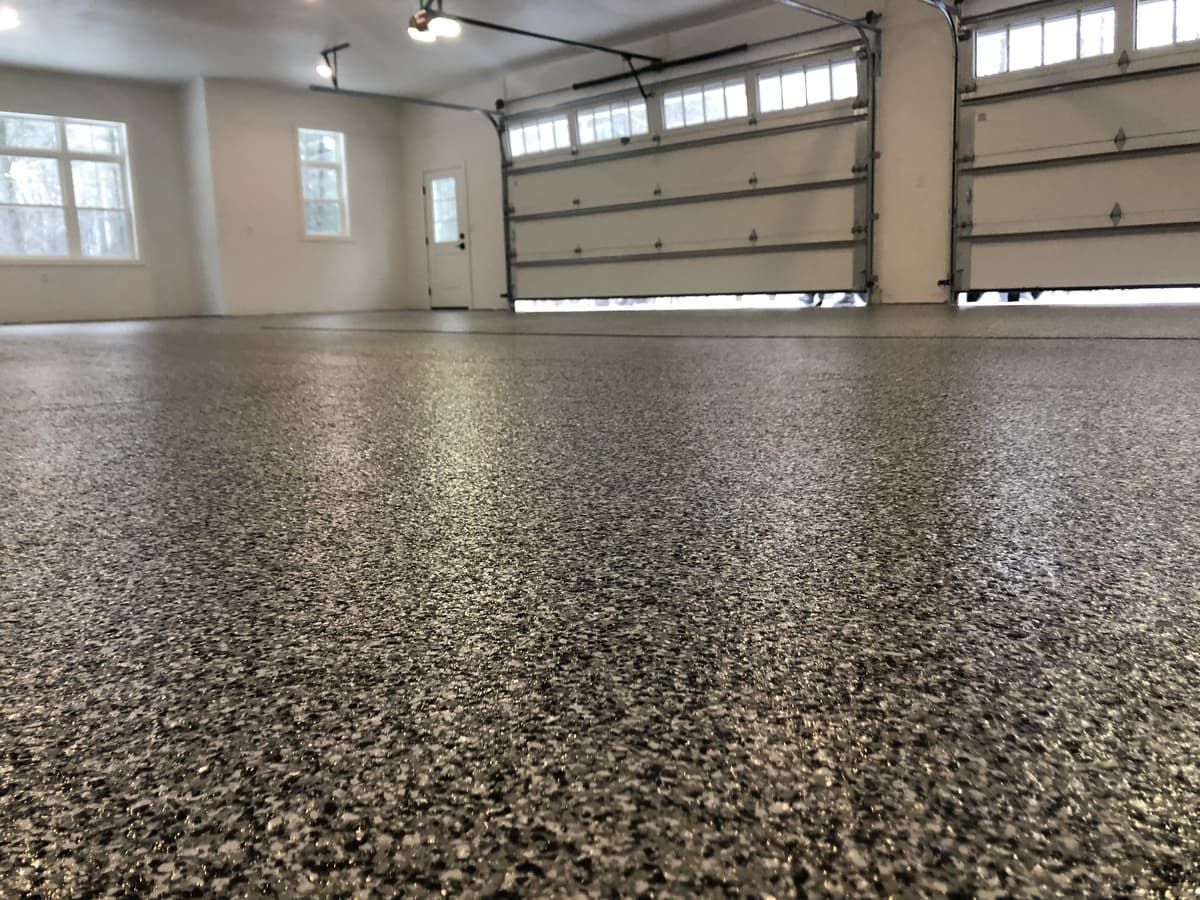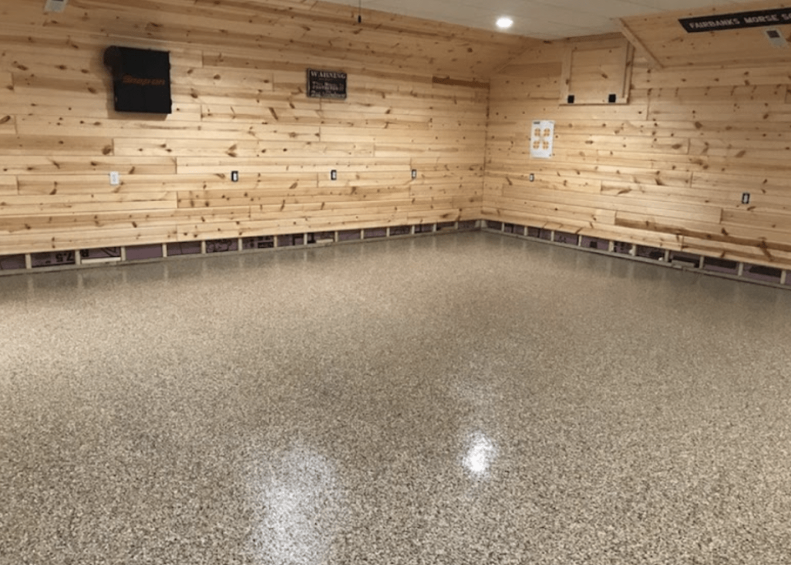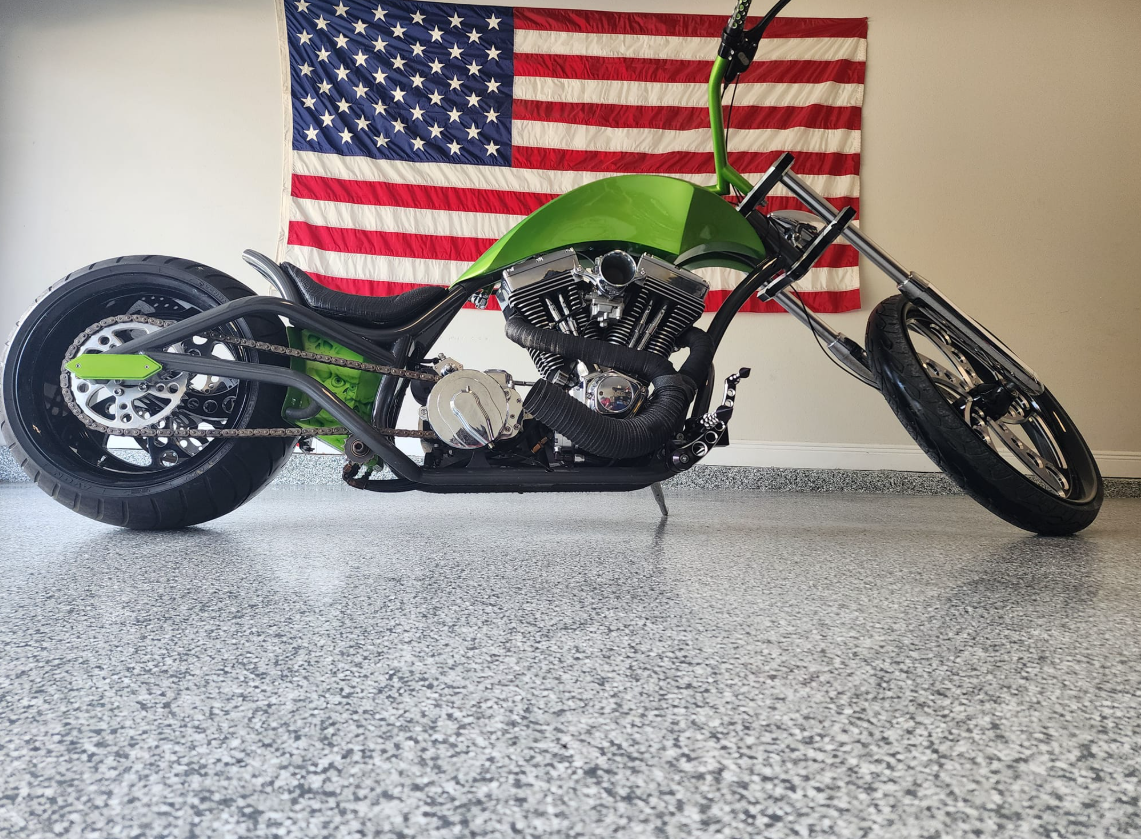Serving Montgomery, Bucks, Delaware, Chester & Berks County Pennsylvania
✉ sales@fortressfloorcoatingspa.com
Serving Montgomery, Bucks, Delaware, Chester & Berks County Pennsylvania
Serving Montgomery, Bucks, Delaware, Chester & Berks County Pennsylvania
✉ sales@fortressfloorcoatingspa.com
Serving Montgomery, Bucks, Delaware, Chester & Berks County Pennsylvania

Epoxy Floor Coatings vs. Polyurea & Polyspartic: Fortress Floors in PA On Why Polyurea is the Superior Choice
When it comes to selecting the best flooring solutions for your industrial, commercial, or residential spaces, choosing the right coating is crucial for durability, longevity, and performance. In the world of floor coatings, three primary options often come up: Polyurea, Polyspartic, and Epoxy. While all of these coatings have their benefits, when it comes to protecting your floors in Pennsylvania, Polyurea and Polyspartic coatings stand out—especially when applied by a trusted company like Fortress Floors.
What is Epoxy Flooring?
Epoxy floor coatings have been a go-to for many years, primarily due to their versatility and strength. Epoxy is a resin-based coating that hardens when mixed with a hardening agent, creating a tough, durable surface. Epoxy coatings are popular in both commercial and residential settings for their smooth finish and ability to resist chemicals, stains, and moisture.
However, while epoxy is a solid option, there are several limitations that can impact long-term performance and the application process, particularly in Pennsylvania’s varying weather conditions.
The Rise of Polyurea and Polyspartic Coatings
Polyurea and Polyspartic coatings are newer to the market but have quickly gained recognition for their advanced technology and superior benefits. Both types of coatings offer high-performance solutions, but they do have subtle differences worth noting.
Polyurea coatings are a type of polymer that is highly flexible and resistant to abrasions, chemicals, and UV damage. Polyspartic coatings, which are similar to polyurea, offer enhanced resistance to UV degradation and are often used as topcoats for added protection.
These coatings excel in the speed of application, curing times, and flexibility compared to traditional epoxy coatings. And here’s why Polyurea and Polyspartic coatings are the ideal choice, particularly in Pennsylvania, where weather conditions can shift dramatically throughout the year.
Key Differences in Process: Polyurea and Polyspartic vs. Epoxy
- Curing Time
- Epoxy: Epoxy coatings typically require 24-72 hours to fully cure, depending on temperature and humidity. This can be a significant drawback, especially in a busy commercial setting or residential property where downtime needs to be minimized.
- Polyurea/Polyspartic: One of the most notable advantages of Polyurea and Polyspartic coatings is the fast curing time. These coatings often cure within 1-2 hours, allowing for quicker turnaround times and reduced downtime. In fact, it is often possible to walk on and even drive on the floor within hours of application, which is especially important for commercial spaces in Pennsylvania that require minimal disruption.
- Application Process
- Epoxy: The application process for epoxy can be more cumbersome and requires a certain level of precision. The surface preparation is critical, and the temperature and humidity need to be ideal for proper bonding.
- Polyurea/Polyspartic: Polyurea and Polyspartic coatings are more forgiving when it comes to surface preparation. They can be applied in a wider range of temperatures and humidity levels, making them a more versatile option for the unpredictable weather in Pennsylvania. This makes the installation process faster and less prone to delays due to weather-related factors.
- Durability
- Epoxy: Epoxy is generally durable but can be prone to cracking and yellowing over time, especially when exposed to UV light. In outdoor or high-traffic areas, epoxy coatings may begin to break down after a few years of use.
- Polyurea/Polyspartic: Polyurea and Polyspartic coatings are incredibly resistant to cracking, yellowing, and UV damage. They maintain their appearance and strength for much longer than epoxy, even in harsh outdoor environments. This makes them particularly ideal for Pennsylvania’s extreme seasonal changes, where snow, rain, and UV exposure can quickly degrade other types of flooring.
- Chemical Resistance
- Epoxy: Epoxy is resistant to many chemicals, but harsh substances, such as automotive fluids or strong cleaning agents, can break down the surface over time.
- Polyurea/Polyspartic: Both Polyurea and Polyspartic coatings are superior in chemical resistance, offering enhanced protection against oils, gasoline, and other harsh chemicals commonly found in garages, factories, or warehouse environments.
- Maintenance
- Epoxy: Over time, epoxy may require re-coating or touch-ups, especially in high-traffic areas. Its susceptibility to cracking and chipping can lead to maintenance issues.
- Polyurea/Polyspartic: Polyurea and Polyspartic coatings, on the other hand, require significantly less maintenance due to their resilience. These coatings are less likely to need touch-ups or replacement, making them an ideal long-term investment.
Benefits of Polyurea for Fortress Floors in PA
When it comes to protecting your floors in Pennsylvania, Polyurea and Polyspartic coatings are the way to go for a variety of reasons:
- Faster Installation: The fast curing time and rapid application mean less downtime for your property or business, keeping your space functional with minimal disruption.
- Long-Term Durability: Polyurea coatings stand up to everything Pennsylvania’s weather can throw at it—from freezing cold winters to humid summers. The flexibility of the coating also ensures that it won’t crack or peel with temperature fluctuations, making it a long-lasting solution.
- Superior UV and Chemical Resistance: Whether it's the sun’s UV rays or chemicals from car maintenance, Polyurea protects against a wide range of threats, keeping your floors looking new longer.
- Cost-Effective Over Time: Though Polyurea coatings may have a slightly higher initial cost than epoxy, their longer lifespan and reduced maintenance make them a more cost-effective option in the long run.
- Seamless Aesthetic: With a smooth and high-gloss finish, Polyurea and Polyspartic coatings give a polished look to any floor. Whether you’re looking for a sleek finish for a showroom or durable flooring for a warehouse, these coatings provide a versatile solution that suits any need.
Conclusion
While epoxy coatings have been a trusted flooring solution for many years, Polyurea and Polyspartic coatings are a superior option for those in Pennsylvania looking for faster application times, longer-lasting results, and greater durability. Fortress Floors specializes in these advanced coatings, delivering unbeatable protection and performance for residential, commercial, and industrial clients.
For a floor that can stand up to the harshest conditions and keep looking great for years, choose Polyurea for your next project. Reach out to Fortress Floors today to learn more about how Polyurea and Polyspartic coatings can elevate your space!
REQUEST A FREE ESTIMATE
We receive your request instantly and usually respond the same day
Contact Us
We will get back to you as soon as possible.
Please try again later.
I would like to receive updates about Fortress Floors' home improvement services and specials at the phone number provided. Note: Messaging frequency may vary and data rates may apply. Reply Help for assistance or STOP to cancel.

SERVICE LINKS
SERVICE AREAS
All Rights Reserved | Fortress Floor Coatings PA | Privacy Policy


